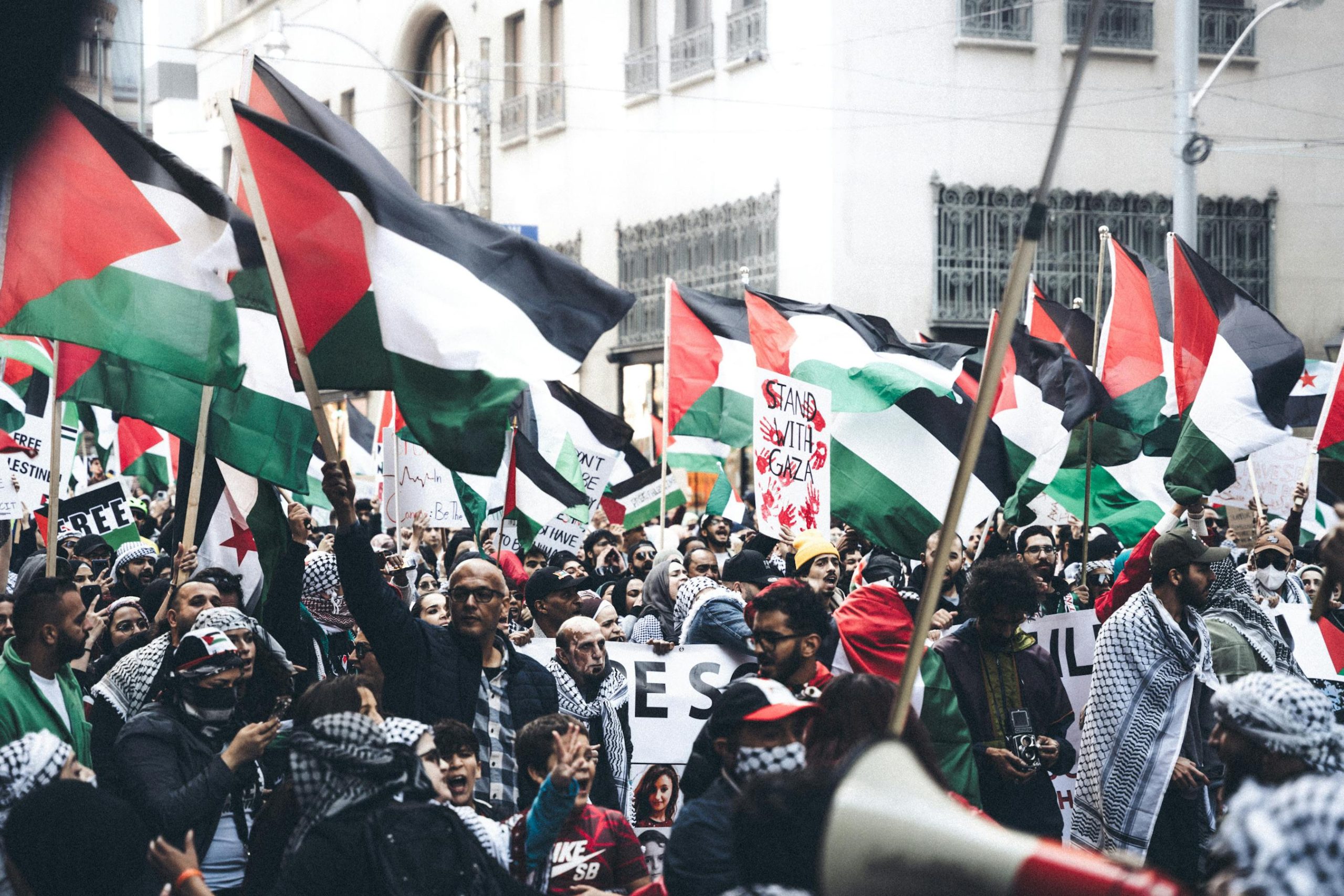Introduction
The arrival of Gaza Evacuees in South Africa has sparked a nationwide conversation about humanitarian responsibility, political influence, and border security. A group of 130 Palestinians fleeing the conflict in Gaza landed in the country through a privately organized evacuation. Their entry was delayed due to missing documentation, raising questions about immigration procedures and the legitimacy of the organization behind the flight. Despite these concerns, South African authorities allowed them in on humanitarian grounds, a decision praised by some and criticized by others. Understanding this event requires examining the organization’s involvement, government response, social media reactions, and the broader political context surrounding displaced Palestinian families.
Gaza Evacuees and the Controversial Charter Flight
The arrival of the Gaza Evacuees began with a privately chartered flight that transported 130 Palestinians from Gaza to South Africa. What made the event controversial was the group responsible for arranging the evacuation. Reports indicate that the organization behind the flight was not formally registered in South Africa, raising immediate concerns from border authorities. The absence of proper exit documents further complicated the situation, leading to delays at the airport while officials verified the passengers’ identities and intentions. Critics argued that a lack of transparency surrounding the organizing group created potential security and political risks. However, supporters emphasized that the evacuees were fleeing dangerous conditions and deserved protection. This clash of perspectives formed the early stages of the debate that followed their arrival.
Gaza Evacuees and the Missing Documentation Issue
One of the most debated aspects surrounding the Gaza Evacuees was the missing exit documentation required for international travel. Normally, passengers must present verified travel papers when leaving a territory, yet the evacuees reportedly lacked these documents. South African border personnel initially held the group at the airport while they checked identities, cross-referenced passenger lists, and reviewed immigration procedures. Critics argued that allowing entry without complete documentation set a concerning precedent that could be misused in the future. Meanwhile, humanitarian advocates pointed out that conflict zones such as Gaza often limit access to official paperwork, making traditional travel protocols unrealistic. The government ultimately prioritized safety and protection over strict documentation requirements, but the episode exposed gaps in crisis response and international travel procedures involving displaced civilians.
H2 – Gaza Evacuees and the Unregistered Organization
A major source of concern was the organization allegedly involved in arranging the evacuation of the Gaza Evacuees. Reports suggested that this group was not registered in South Africa, prompting worries about accountability and legitimacy. Some observers questioned whether the group had political motives or affiliations that were not immediately disclosed. Speculation intensified when media outlets linked the organization to Israel’s so-called “Voluntary Emigration Bureau,” a controversial body that critics believe encourages Palestinians to leave Gaza permanently. Although these connections were not confirmed by officials, the possibility amplified public unease. Supporters of the evacuation emphasized that, regardless of the organizing group’s background, the evacuees were vulnerable civilians needing urgent help. The ambiguity surrounding the organization highlighted the need for clearer regulations on foreign humanitarian operations within South African borders.
Gaza Evacuees and South Africa’s Humanitarian Stance
South Africa’s decision to allow the Gaza Evacuees entry was deeply connected to its longstanding diplomatic stance toward the Palestinian cause. Historically, the country has shown strong support for Palestinian rights, often drawing parallels between apartheid-era South Africa and the situation in Gaza. Government officials framed the decision as a continuation of South Africa’s commitment to humanitarian assistance and global justice. Supporters praised the government for prioritizing human dignity over bureaucratic technicalities, pointing out that many survivors of conflict face nearly impossible barriers in obtaining official documents. However, critics argued that the decision lacked the procedural transparency expected from immigration authorities. Despite these disagreements, the event reinforced South Africa’s public image as a state that blends foreign policy with moral and humanitarian principles, especially in times of conflict.
Gaza Evacuees and Public Reaction Within South Africa
The arrival of the Gaza Evacuees generated mixed reactions from the South African public. Many citizens expressed deep sympathy for Palestinians fleeing violence, highlighting the moral responsibility of welcoming families escaping a humanitarian crisis. Social media platforms were flooded with messages of solidarity, including widely used expressions such as “Free Palestine.” On the other hand, some residents expressed concerns about immigration control, national security, and the influence of unverified organizations operating in the background. A segment of the population worried that irregular entries might inspire political tension or be exploited by bad actors. The debate illustrated a broader divide between humanitarian values and fears rooted in security and regulatory concerns. These contrasting views continue to shape public discourse around refugee policy and international humanitarian cooperation.
Gaza Evacuees and Global Political Implications
Beyond South African borders, the arrival of the Gaza Evacuees sparked international conversations about refugee movements, diplomatic relations, and geopolitical consequences. Some commentators warned that such actions might draw critical attention from countries with stricter immigration policies, especially the United States. With political uncertainty surrounding future U.S. leadership, some analysts suggested that humanitarian admissions like this could influence foreign perceptions of South Africa. Supporters dismissed these concerns, emphasizing that humanitarian action should not be constrained by geopolitical pressure. They argued that protecting civilians fleeing conflict reflects global moral obligations, regardless of shifting political climates. Still, the possibility of diplomatic tension illustrated how refugee movements intersect with world politics. The situation demonstrated that humanitarian decisions often carry broader international implications, influencing alliances and public opinion beyond the immediate region.
Gaza Evacuees and the Debate Over Forced Migration Narratives
At the center of the debate surrounding the Gaza Evacuees was the question of whether their evacuation could be linked to broader narratives of forced migration. Critics pointed to allegations surrounding organizations connected to “voluntary emigration” programs, arguing that evacuations should not contribute to long-term displacement of Palestinian residents. Some feared that if such movements appeared coordinated or politically motivated, they could unintentionally support controversial policies aimed at depopulating conflict regions. Supporters countered that the evacuees voluntarily accepted assistance, primarily motivated by safety concerns rather than political agendas. They emphasized that individuals escaping conflict zones deserve protection regardless of geopolitical narratives. While no concrete evidence confirmed any form of coercion, the situation highlighted the sensitivity of population movements and the need to ensure transparent, ethical evacuation processes that genuinely prioritize human welfare.
Gaza Evacuees and Immigration Policy Challenges
The arrival of the Gaza Evacuees placed a spotlight on South Africa’s immigration system and its capacity to manage urgent humanitarian entries. Officials had to make rapid decisions balancing security procedures with the moral imperative to aid those fleeing conflict. Critics argued that the lack of consistent policies for crisis-driven arrivals exposed weaknesses in immigration management. They called for clearer guidelines on documentation waivers, verification processes, and oversight of foreign organizations involved in evacuations. Supporters, however, viewed the handling of the situation as evidence that flexibility is essential when dealing with vulnerable populations. They noted that strict immigration rules often fail to account for emergencies where documentation is unavailable. The event ultimately raised important questions about how South Africa can strengthen its immigration framework to better respond to similar humanitarian situations in the future.
Gaza Evacuees and Future Humanitarian Cooperation
Looking ahead, the arrival of the Gaza Evacuees may influence how South Africa approaches future humanitarian partnerships. The situation revealed both the strengths and vulnerabilities of ad-hoc evacuation efforts conducted by private or foreign groups. Policymakers may now consider implementing stronger oversight mechanisms to ensure that any organizations operating humanitarian flights meet legal and ethical standards. At the same time, the successful admission of evacuees demonstrated South Africa’s willingness to collaborate with international actors in times of crisis. Experts suggest that the event could inspire more structured cooperation between governments, NGOs, and regional groups seeking to bring displaced civilians to safety. Ultimately, the long-term impact will depend on whether lessons from this episode lead to improved coordination and more transparent humanitarian practices.
FAQs
Q1: Why were the Gaza Evacuees allowed into South Africa?
Authorities admitted them on humanitarian grounds despite missing documentation.
Q2: Who organized the travel of the Gaza Evacuees?
A private group reportedly arranged the flight, though questions remain about its registration status.
Q3: Did the Gaza Evacuees face delays on arrival?
Yes, immigration officials paused their entry to verify identities and review missing paperwork.
Conclusion
The arrival of the Gaza Evacuees in South Africa sparked important discussions about humanitarian duty, immigration procedures, and political narratives. While the event highlighted challenges related to documentation and organizational transparency, it also reinforced South Africa’s long-standing commitment to supporting displaced civilians. The public debate that followed demonstrated how complex refugee situations can become, especially when influenced by international politics and local concerns. As South Africa reflects on the experience, it may refine future policies to improve oversight and strengthen humanitarian cooperation.




